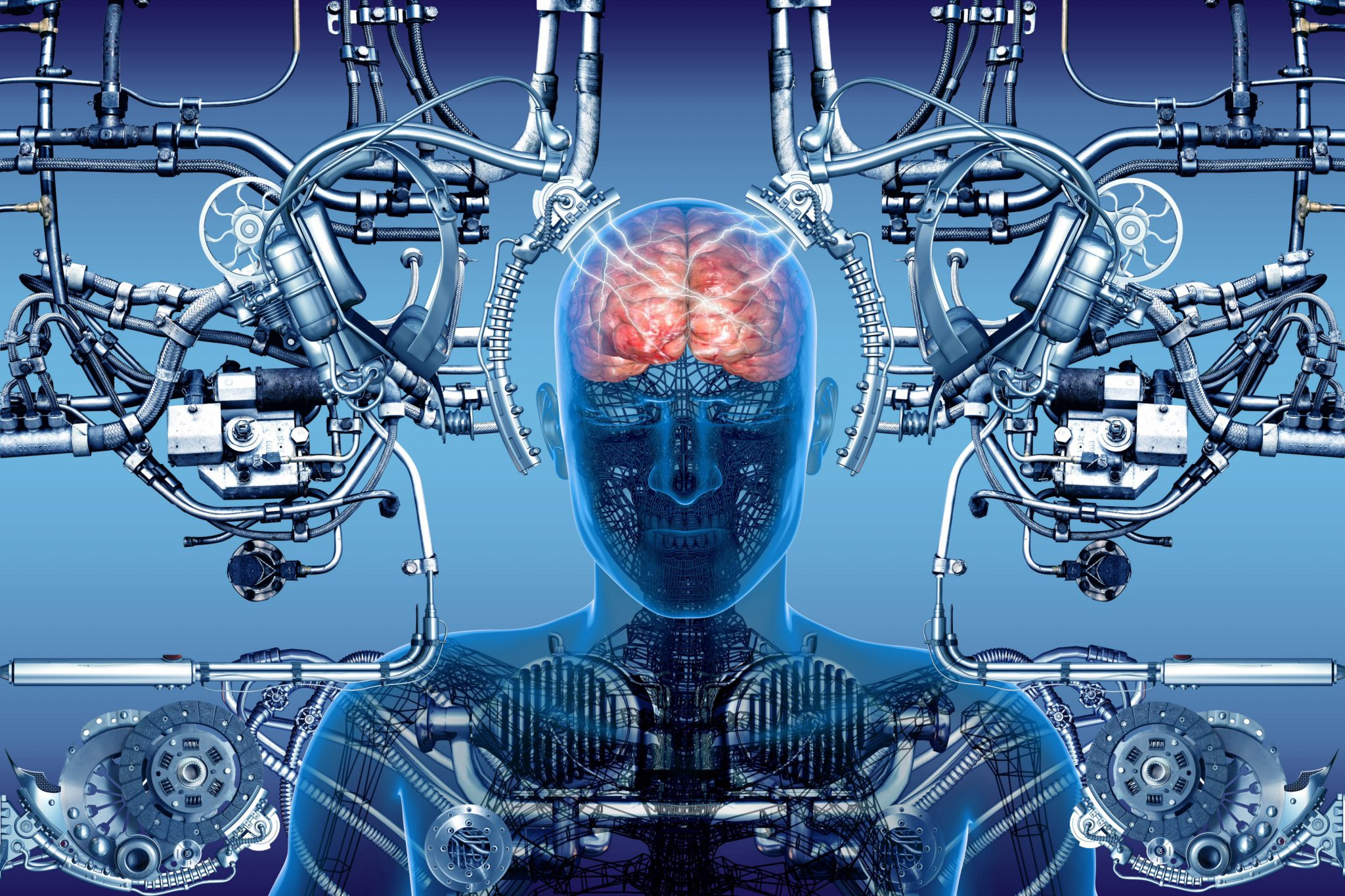
Brain-Computer Interfaces: Navigating Benefits and Risks
Brain-computer interfaces (BCIs) are at the forefront of a technological revolution that could redefine human potential and interaction. This cutting-edge neurotechnology aims to bridge the gap between human minds and machines, allowing for unimaginable capabilities such as direct thought communication, mind control technology, and control over prosthetic devices. The entry of companies like Neuralink, founded by Elon Musk, signifies a pivotal moment in this rapidly growing BCl market, valued at potentially $400 billion in the U.S. alone. However, as these advancements unfold, concerns arise regarding the psychological manipulation possibilities and ethical implications of such technologies. The discussion around neurotechnology implications is becoming increasingly important, especially as we consider how these innovations might echo historical efforts at psychological control and human rights violations.
Brain-machine interfaces, often referred to as neural interfaces, are leading us into a new era where human thought can interact seamlessly with digital devices. This emerging field encompasses an array of applications, from healthcare solutions that help restore mobility to those with disabilities to enhancements that could improve cognitive functions. As advancements continue with companies like Neuralink, the technology’s potential to influence thought processes raises ethical questions about autonomy and consent. Furthermore, the associated risks underscore the need for careful scrutiny regarding mind control capabilities and their potential misuse. Understanding the ramifications of these advancements is crucial, as the boundary between aiding human life and infringing upon individual freedoms becomes increasingly blurred.
Understanding Brain-Computer Interfaces (BCIs)
Brain-computer interfaces (BCIs) represent a groundbreaking intersection of technology and neuroscience, enabling direct communication between the brain and external devices. These innovative systems hold promise for patients with neurological disorders, providing them the ability to control computers, prosthetic limbs, and even facilitate speech through thought alone. The advent of companies like Neuralink has accelerated the development of this technology, broadening expectations for treating conditions such as paralysis and stroke. With the BCI market quickly expanding, projections suggest it could reach upwards of $400 billion, highlighting the immense potential and the urgent need for ethical considerations in this rapidly evolving field.
As BCIs continue to mature, researchers explore both the technological marvels they create and the ethical implications they involve. These devices tap into neural signals to translate thought into action, revolutionizing how we interact with technology. However, the advancements in this sector also invite questions about psychological manipulation and the risks of unintended consequences. Striking a balance between technological innovation and ethical responsibility is crucial to ensure that BCI applications enhance human autonomy rather than compromise it.
Neuralink and Its Implications for Healthcare
Neuralink, founded by Elon Musk, has captured public interest with its ambitious goals of enhancing human cognition and treating severe medical conditions. The company’s pioneering brain chip implant was recently demonstrated by Noland Arbaugh, who successfully controlled a computer cursor using his thoughts alone. Such advancements in neurotechnology could revolutionize healthcare, offering new hope for individuals suffering from disabilities. However, this transition into a BCI-driven healthcare model raises significant questions about mental privacy and the potential for psychological manipulation.
As Neuralink and similar companies forge ahead, they may inadvertently introduce risks related to mind control technology. The capacity to read and interpret brain signals may offer therapeutic advantages, yet it also poses ethical dilemmas regarding consent and self-determination. As society progresses through this uncharted territory, it becomes increasingly vital to develop regulatory frameworks that protect individuals from potential misuse of neurotechnology, ensuring that advancements serve the greater good without infringing on personal liberties.
Historical Context of Mind Control Technology
To understand the implications of brain-computer interfaces today, we must look back at historical attempts at mind control, particularly during the Cold War era. The CIA’s MKUltra program attempted to manipulate human behavior through unethical experiments, highlighting the dangerous potential of neurotechnology when misapplied. As new technologies emerge, parallels can be drawn between these historical abuses and modern developments in BCIs, underscoring the risk of repeating past mistakes if robust safeguards are not established.
Historically, various programs aimed at behavioral modification reveal a dark shadow that looms over modern neuroscience. As Lukas Meier warns, the drive to decode thoughts and influence behavior may recur with today’s sophisticated tools, potentially allowing state or private entities to infringe upon individuals’ mental autonomy. In recognizing the lessons of history, it becomes imperative that we approach current BCI technologies with caution, ensuring that the innovations we pursue are aligned with ethical standards and human rights principles.
Ethical Concerns Surrounding Neurotechnology
With the rise of brain-computer interfaces comes a pressing need to address ethical concerns regarding their applications. The capacity for psychological manipulation rooted in these technologies prompts critical discussions about mental privacy and consent. In particular, instances such as children using devices that track brainwave activity for attention enhancement have raised alarm among communities about the potential for nefarious applications of neurotechnology.
Moreover, as BCIs progress towards more aggressive forms of intervention, their potential to alter behavior must be scrutinized. Research indicates that deep brain stimulation might induce unexpected behaviors in patients, leading to ethical questions about responsibility and agency. There is a crucial demand for regulations that champion user consent and protect individuals from unwanted interventions, ensuring that the development of neurotechnology aligns with ethical boundaries.
Market Growth and Future Prospects of BCIs
The market for brain-computer interfaces is poised for significant growth, fueled by an increasing demand for innovative solutions in healthcare and beyond. With estimates suggesting a market value of approximately $400 billion in the U.S., both public and private sector investments are ramping up to support the technology’s development. Companies like Neuralink are at the forefront of this movement, promising to deliver life-changing solutions for individuals with disabilities while paving the way for broader applications in human cognitive enhancement.
As the BCI market expands, it is essential to consider not just the economic implications but also the social and ethical ramifications of widespread adoption. The prospect of integrating BCI technology into everyday life raises concerns about access, inequality, and the potential misuse of the technology. Ensuring that the benefits of brain-computer interfaces are distributed equitably will be a major challenge for policymakers and industry leaders alike as they navigate this transformative landscape.
Potential Benefits of BCI Technology
Brain-computer interfaces offer a plethora of potential benefits, particularly for individuals with neurological impairments. For patients with conditions like paralysis or severe motor impairment, BCIs can provide unprecedented levels of independence, allowing them to communicate and interact with their environment in ways previously thought impossible. This technology can empower users to regain control over their lives, drastically improving their quality of life and opening up new avenues for rehabilitation.
Furthermore, BCIs have the potential to enhance cognitive functions, allowing users to process information more efficiently or even augment their decision-making capabilities. The promise of merging human intelligence with advanced computational power could lead to collective advancements in fields like medicine, education, and creative arts. However, to maximize these benefits while minimizing risks, ongoing dialogue about the ethical implications and regulatory frameworks surrounding these technologies is vital.
The Future of Neurotechnology and Society
As brain-computer interface technology progresses, its integration into society raises profound questions about the future of human agency and interpersonal relations. The potential to decode thoughts and influence behavior could redefine how individuals interact with one another, leading to a re-evaluation of privacy, autonomy, and the essence of human experience. The boundary between human cognition and machine assistance will continue to blur, prompting critical discussions about what it means to be human in an increasingly digitized world.
Moreover, as we navigate this new terrain, we must remain vigilant about the implications of empowering technology without sufficient oversight. The specter of psychological manipulation looms large as BCIs become more prevalent, compelling us to create frameworks that protect individual rights and mental privacy. As we step into this uncharted future, fostering an inclusive dialogue around neurotechnology will be crucial to ensure that its advancements reflect our shared human values and aspirations.
Global Perspectives on Neurotechnology Development
The development of brain-computer interfaces is not limited to the U.S. but is a global endeavor, drawing attention from various nations eager to harness the potential of neurotechnology. Countries like China are making significant strides in this field, with applications such as brainwave-tracking devices for educational purposes already raising ethical concerns within their educational systems. As nations pursue advancements in BCIs, a competitive landscape is emerging that poses risks of geopolitical tensions centered around technology and psychological manipulation.
This global race for neurotechnology advancements emphasizes the importance of establishing international standards of ethical conduct for BCI research and application. Collaborative efforts could mitigate the risks associated with psychological manipulation and ensure that advancements in neurotechnology do not compromise individual freedoms across borders. It is crucial for the global community to engage in dialogue around these technologies to safeguard human rights while promoting innovation that benefits society as a whole.
Navigating the Risks of Advanced Neurotechnologies
As brain-computer interfaces transition from theoretical research to practical applications, a range of risks becomes apparent that must be navigated with care. One major concern is the potential for misuse in the realms of psychological manipulation and mind control, where the line between enhancement and oppression can easily blur. The implications for consent and mental privacy are profound, particularly in scenarios where individuals may not fully understand the extent to which their thoughts or behaviors could be influenced by external technologies.
Given these risks, it is vital for stakeholders, including governments, researchers, and ethicists, to establish comprehensive safety guidelines that prioritize the well-being of individuals and ensure that BCIs function within ethical boundaries. The lessons learned from historical abuse of psychological manipulation underscore the need for vigilance as we integrate advanced neurotechnology into society. Creating checks and balances to uphold human dignity in the face of technological advancement will be crucial as we forge ahead.
Frequently Asked Questions
What are brain-computer interfaces (BCIs) and how do they work?
Brain-computer interfaces (BCIs) are systems that enable direct communication between the brain and external devices. By interpreting brain signals, these neurotechnology devices allow individuals to control computers or prosthetic limbs with thought alone, offering life-changing benefits for those with disabilities.
How is Neuralink advancing brain-computer interfaces technology?
Neuralink, founded by Elon Musk, is at the forefront of brain-computer interfaces technology. Their innovative brain chip implants allow users, such as paralyzed individuals, to control devices like computer cursors and even play games using only their thoughts. This breakthrough in neurotechnology has significant implications for rehabilitation and medical treatments.
What are the potential risks associated with brain-computer interfaces?
While brain-computer interfaces (BCIs) hold tremendous promise, there are potential risks, particularly concerning psychological manipulation. Historical experiments, like the CIA’s MKUltra, highlight how advanced neurotechnologies could be misused for mind control and breaches of mental privacy if not regulated properly.
How large is the market for brain-computer interfaces?
The brain-computer interface (BCI) market is projected to be worth around $400 billion in the United States alone, driven by the growing demand for neurotechnology applications in helping individuals with conditions like spinal cord injuries and strokes.
Can BCIs lead to unintended psychological effects?
Yes, brain-computer interfaces can lead to unintended psychological effects. Research has shown that neuromodulation through BCIs may inadvertently alter behavior, as seen in cases where deep brain stimulation triggered unexpected actions in patients, suggesting the need for careful application of this technology.
What ethical concerns do BCIs raise regarding psychological manipulation?
Brain-computer interfaces raise ethical concerns about psychological manipulation and consent, especially as technology evolves. The ability to decode thoughts or alter behavior poses significant implications for personal autonomy and privacy, necessitating stringent ethical guidelines in neurotechnology development.
What is the relationship between BCI technology and mind control?
The relationship between brain-computer interfaces and mind control is contentious. While BCIs are intended for therapeutic use, advancements could potentially enable misuse for psychological manipulation, echoing troubling past practices seen during Cold War experiments on behavior control.
How are brain-computer interfaces expected to change the lives of people with disabilities?
Brain-computer interfaces are expected to radically change the lives of individuals with disabilities by enabling them to interact with technology independently. BCIs can restore functionality by allowing users to control prosthetic devices or computers through thought alone, enhancing their quality of life.
How does psychological manipulation relate to the future of neurotechnology?
Psychological manipulation in the context of neurotechnology raises alarms as brain-computer interfaces become more sophisticated. Experts warn that the potential to influence or control human thoughts and behaviors, similar to past mind control attempts, poses significant ethical risks that society must address.
What measures can be taken to prevent misuse of BCI technology for mind control?
To prevent misuse of brain-computer interface (BCI) technology for mind control, it is crucial to establish comprehensive ethical guidelines, regulatory frameworks, and ongoing oversight. Ensuring transparency in research, addressing privacy concerns, and fostering public discussion about the implications of BCI advancements will be vital.
| Key Point | Details |
|---|---|
| Introduction of BCIs | Neuralink implanted the first brain chip in a paralyzed individual, allowing control of devices via thought. |
| Potential Benefits | BCIs could help individuals with disabilities operate prosthetics or communicate directly. |
| Market Estimation | The market for BCIs could reach around $400 billion in the U.S., addressing various disabilities. |
| Historical Warnings | A paper warns about historical abuses in mind control techniques, invoking Cold War examples. |
| Ethical Concerns | Concerns arise regarding consent, mental privacy, and potential misuse by states or individuals. |
| Future Risks | BCIs could lead to unintended behavior changes, reminiscent of past mind control methods. |
| Development Advocacy | Despite risks, continued development of BCIs is encouraged to stay competitive and prevent misuse. |
Summary
Brain-computer interfaces (BCIs) represent a groundbreaking technology that holds immense promise for revolutionizing the way individuals with disabilities interact with the world. While the potential benefits of these devices are significant, particularly for those seeking to regain control over their lives, they also pose unique ethical challenges and risks reminiscent of past abuses in psychological experimentation. As we venture into this new frontier, it is critical to learn from history to ensure that such innovations protect human rights and uphold the dignity and autonomy of all users.



